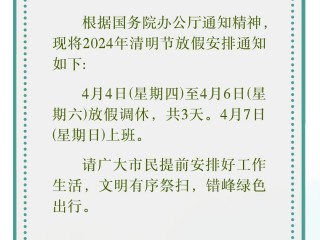人生倒计时
- 今日已经过去小时
- 这周已经过去天
- 本月已经过去天
- 今年已经过去个月
求高中宾语从句 怎么用
定语从句(Attributive Clauses)在句中做定语,修饰一个名词或代词,被修饰的名词,词组或代词即先行词。定语从句通常出现在先行词之后,由关系词(关系代词或关系副词)引出。
位置:之后 例:Those who are willing toendthe party , sign your 定语从句是由关系代词或关系副词引导的从句,其作用是作定语修饰主句的某个名词性成分,相当于形容词,所以又称为形容词性从先行词定语句一般放在先行词的后面.)
关系词
引导定语从句的关联词称为关系词,关系词有关系代词和关系副词。关系代词有that, which, who, whom, whose, as等,绝对没有what;关系副词有where, when, why等。关系词常有3个作用: ①连接作用,引导定语从句。 ②代替主行词,甚至可能是主句中的一部分或者整个主句。 ③在定语 注:关系代词有主语、宾语之分。一般whom作为宾语。关系代词在从句中作主语,宾语,表语,定语等,关系副词在从句中作地点状语。
定语
定语用来限定、修饰名词或代词起修饰、限定作用的词、短语(动词不定式短语、动名词…的’表示容词担任,此外,名词,代词,数词,分词,副词,不定式以及介词短语也可以来担任,也可以由一个句子来担任。单词作定语时通常放在它所修饰的词之前,作前置定语 被定语从句修饰的名词、代词称为先行词。如The man The book关系代词所代替的先行词是人或物的名词或代词,并在从句中充当主语、宾语、定语等成分。关系代词在定语从句中作主词保持一致。
1,who, whom, that
这些词代替指人,whom作宾语指人,that既可作主语又可作宾语(作宾语可以省略),可以指人也可以指物。在从句中所起作用如下: (1) Is he the man who/that wants to see you? 他是那个想见你的男人吗?(who/that在从句中作主语) (2) He is the man whom/ that I saw yesterday. 他就是我昨天见的那个人。(whom/that在从句中作宾语) (3)The man whom you spoke to just now is our English teacher 你刚刚说话的那个男人是我们的英语老师
2,Whose 用来指人或物
(只用作定语, 等,作宾语时可以省略,例如: (1)Prosperitywhich / that had neppearsin te. 农村出现了前所未有的繁荣。(which / that在从句中作主语) (2) The package (which / that) you are carryingis about to come unwrapped.你拿那个包裹快要散开了。(which / that在从句中作宾语)
whose
whose表示谁(可以为人也可以为物)的(东西) 例:A child whose parents are dead is called an arphan.双亲都死了的孩子叫做孤儿。(whose表示那个孩子的双亲) He lives in a room whose window faces south.他住的那个房子的窗户是朝南的。(whose表示那个房子的窗户) 关系代词:在句中作主语、宾语或定语 1. that既可代表事物也可代表人,which代表事物;它们在从句中作主语或宾语,that在从句中作宾语时常可省略关系词,which在从省略。[eg:This is the book (which)you want.] 2不及物动词+介词”的介词的宾语代词wh放在它原来的位置 3. 代表物时多这时的that常被省略; c被形容词最高级修饰时;既有人又有物时; e)整个句中前面已有which,wh行 关系副词:在句中作状语 关系副词=介词+关系代词 why=for which where=in/ at/ on/ich (介词同先行词搭配) when=during/ on/ in/ ... which (介词同先行词搭配) 1. where是关系代词,当然也不用that引导。 By the time when you arrived in London, we had stayed there for two weeks. 到你到达伦敦的时候,我们在那里已经待了两个星期。 I still remember the her. 我仍然记得我第一次见到她。 Each time when he goes to business trip, he brings a lot of living necessities, such as towels, soap, toothbrush etc。 他每次出差都带来了生活必需品,如毛巾,肥皂,牙刷等其他东西。 3. 当从句的逻辑主语是some, any, no, somebody, anybody, nobody, something, anything, everything或nothing时,常用there is 开头 There is somebody here who wants toak to you. 这里有人要和你说话。 分作进一步说明,通常是引导词和先行词之间用逗号隔开,将从句拿掉后其他部分仍可成立.
编辑本段非限制性定语从句
意义: 非限制性定语从句起补充说明作用,缺少也不会影响全句的理解。在非限制性定语从句的前面往往有逗号隔开,如若将非a lovely garden. 我去年买的的房子带着个漂亮的花园。 This novel, which I have read three times, is very touching. 这本我已经读过三遍的小说很感人。 3.非限定性定语从句可将整个主句作为先行词, 对其进行修饰, 这时从句谓语动词要用第三人称单数,例如: He seems not to have grasped what I meant, which greatly upsets me.他似乎没抓住我的意思,这使我心烦。 Liquid water changes to vapor, which is called evaporation. 液态水变为蒸汽,这就叫做蒸发。 4. 有时as也可用作关系 5. 在非限定性定语从句中,不能用关在从句中做主语 (1) The boys who are playing football are from Class One. 在踢足球的男孩们是一班的. (2) Yesterday I helped an old man who lost his way. 昨天,我帮助了一个迷路的老人.
whom指人
在定语从句中 my friend. 你刚刚见到的那个人就是我的朋友. 注意:关系代词whom在口语和非正式语体中常用who代替,可省略。 如果在从句中做宾语,就用whom或has an English book. 他就是那个有英语书的男人.
whose通常指人也可指物
在定语从句中做定语,表所有。 (1) He has a friend whose father is a doctor. 他有一个朋友的父亲是医生. (2) I once lived in a house whose roof has fallen in.我曾经住在一座现在已经倒塌的房子中. whose指物时通常以以下结构来代替 (3) The 颜色是什么. 足球是大多数男孩都喜欢的游戏. (2) This is the pen (which) he bought yesterday. 这是他昨天刚买的钢笔.
that指人时
相当于who或者whom;指物时,相当于which。 在定语从句中做主语,表语或者宾语,做宾语时可省略。 (5) The number of the people that/who come to visit the city each year rises one million. 每年来这座城市观光的游客数目上升了100万。 (6) Where is the man this morning? 今天早的定语从句
when指时间
在定语从句中做时间状语也可做连接词用 (1) I been pulled down.
why指原因
在定语从句中做原因状语 (1) Please tell me the reason why you missed the plane. (2) I don’t know the reason why he lookswhen/in which he was going to school he began to know what he wanted when he grew up.
编辑本段介词和关系代词
1)介词后面的关系代词不能省略。 2)that前 Do you .作介词的宾语,且可以省略。例如: (1) The school (that/which) he once studied in is very famous."that/which"可以省略 = The school i which hied is very famous."which”不可省略 (2) Tomorrow I will bring here 用,如:look for, look after, take care of等 T This is the watch which/that I am looking for. (T=正确) F This is the watch for which I am looking. (F=错误) 2. 若介词放在关系代词前,关系代词指人时用whom,不可用who或者that;指物时用which,不能用that;关系代词是所有格时用whose (1) The man with whom you talked is my friend. (T) The man famous. (5) I bought many books yesterday, three of which are written by Lu Xun.
关系代词
关系代词(一般情况下)that 可用在从句做主语,谓动词的宾语,但是不能做介词的宾语。 which指物,在从句句中作主语; whom在从句中作宾语; where在从句中修语,先行词通常是"the reason" 有时why也可用for+which代替。 例:A doctor who looks after people's health. 主语 谓语 先行词 定语从句修饰先行词
判断介词和关系代词
方法一: 用关系代词,还是关系副词完全取决于从句中的谓语动词。不及物动词后面无宾语,就必须要求用关系副词或者是介词加关系代词;而及物动词后接宾语,则要求用关系代词。例如: This is the mountain village where I stayed last year. I'll never forget the days when I worked together with you. 判断改错(注:先显示题,再显示答案,横线;用不同的颜色表示出。) (错) This is the mountain village where I visited last year. (错) I will 为句子的状语表地点,既可用副词where,又因 in the museum词组,可用介词in + which 引导地点状语。而此题中,介词on 用的不对,所以选A。 关系词的选择依据在从句中所做的成分,先行词在从句中做主、宾语时,选择关系代词 (who, whom, that, which, whose); 先行词在从句中做状语时,应选择关系副词 ( where 地点状语,when 时间状语,why 原因状语) 。
编辑本段先行词和关系词
1)Whoever spits in public will be punished here. (Whoever 可以用 anyone who 代替) 2)The parents will use what they have to send their son to technical school. (what 可以用all that代替) 但这两句句子已经不是定语从句了,是名词性从句。因为定语从句一定要有先行词,而名词性从句没有。将“Whoever”、“what”分别用“Anyone who”、“all that”代替后,才是定语从句,先行词分别是“Anyone”、“all”。an invitation from her boss, ___came as a surprise. A. it B. that C. which D. he 答案C。 此为非限定性从句,不能用 that修饰,而用which.,it 和he 都使后句成为句子,两个独立的句子不能单以逗号连接。况且选he句意不通。 2)The weather turned out to be very good, ___ was more than we could expect. A. what B. which C. that D. it 答案B英语语法上行不通。 3)It rained hard yesterday, ____ prevented me from going to the park.. A. that B. which C. as D. it 答案B。 as 和which在引导非限宾语。但不同之处主要有两点: (1)importance to me, as my own is. 在一定的语言环境里,有些名词可以具有形容词的性质。这些名词主要是那些表示人的身份、职业、状态的名词。值得一提的是,在这些具有形容词性质的名词之后,引导定语从句的关系代词不能用who / whom. 2. 动词短语先行成分。 这种动词短语既可是限定形式也可是非限定形式。如果是动态动词短语,它们在从句中就一般有限定或非限定形式的替代动词do和as / which一起代替。do可以出现,也可以不出现,但不能用其它动词代替。 3. 句子作先行成分。 这句子可以是整个主句也可以只是主句中的一个从句。有时是连续几个句子,有时甚至可以是一个完整的故事。 二、“as/which”特殊定语从句在句中的位置 由于先行成分的构成成分”特殊定语从句在句中的位置有以下几种情况: 1. 形容词做先行成分时:形容质的which”特殊定语从句置于先行成分之后。 2. 动词词短语作先行成分时,“as / which”特殊定语从句置于先行成分之后。但是,当从句中含有表示主观意志的插入成分时,“as”特殊 3. 句子作先行成分时:“as”特殊定语从句的位置较灵活,可以置于先行成分之前、之中或之后。但如果先行成分是直接引语,“as”特殊定s”特殊定语从句与否定词的相对中则常用一些表示“合乎自然规律”、“众所周知”或“经常发生”等意义的词语,如natural, known to all, usual等。 3. 有无状语意要是方式状语意义),而“which”特殊定语从句则无状语意义。“as”特殊定四、关系代词as与which一词。如: Freddie, as might be expected, was attending the conference. Which作主语时,谓语动词不限,主动被动皆可,只是谓语动词为被动语态时助动词be省略。 2. as和which都可以在特殊定语从句中宾语。 3. as和 which在特殊从句中作补语。如: We thought him a gentleman, as/which he could never be. “as”特殊定语从句中可以主谓倒装,“which”从句中则不能主谓倒装。 如果先行成分不是主语补语或宾语补语,关系代词用which而不用as。如: He talked like a native, which/as he hardly was. 4. which在特殊从定法 (1)不用that的情况 (a) 在引导非限定性定语从句时。 (错)The tree, which is four hundred years old, Is very famous here. (b) 介词后不能用。 We depend on the land from which we get our food. We depend on the land that/which we get our food from. (2) 只能用that作为定语如 last,just修饰时,只用that。 (d) 先行词为序数词、数容词,又有物时。 (f) 先行词指物,在主句中作是the way或the reason时,that可作关系副词,也可省略 (h) 主句的主语是疑问词who /which时,避免重复要用that. 举例: Is this the book that you borrowed in the library? 这是你在图书馆借Who that break the window should be punished. 谁打碎了窗户. All that is needed is a supply of oil. 所需的everything that he had stolen to the police. 那贼最终把偷的全部东西交给了警察。 that必用 1先行词是最高级或被最高级修饰 2是序数词或被序数词修饰 3不定代词指物 5被only;the every,no,one of等修饰 6主句有which;who;whom 7there be 句型中 8如果有两个从句,其中一个关系代词已用了which,另一个关系代词宜用that 9先行词在主句中作表语,或者关系代词本身作从句的表语是宜用that that在作宾语时可省 10.不是任何时刻关系词作主语宾语是能用that难点分析you.注意1:, the only,the same,the last ,any,little等修饰时(1) This is the very good dictionary that I want to buy,(2) After the fire in his house, the old car is the only thing that he owned.当先行词指人时,偶尔也可以用who(3) Wang Hua is the only person in our school who will attend the meeting?5、当先行词前面有who, which等疑问代词时(1) Who is the man that is standing there?(2) Which is the T-shirt that fits me most?6、当先行词既有人,也有动物或者物体时Can you remember the scientist and his theory that we have learned?7.当关系代词在定语从句中做表语The village is no longer the one that it used to be 10 years ago.8.当在which引导的定语从句as和which引导非限制性定语从句,有相同之处也有不同之处。具 a developing country.(2) He is from the south, as we can see from his accent.(3) John, as you know, is a famous writer.(4) He has been to Paris more than several times, which I don’t believe.注意:当主句和从句存在逻辑上的因果关系时,常用which。(5) Tom was always late for school, which made his teacher angry.3、当先行词受such, the same修饰时,常用as(1) I have never heard such a story as he tells.(2) He is not such a fool as he looks.(3) This is the same book as I lost last week.注意:当先行词由the same修饰时,偶尔也用that引导定语从句,但是和由as所引导的定语从句意思不同(4) She wore the same dress that she wore at Mary’s wedding. 她穿着她注意:定语从句such…as …与结果状语从句such… that…的区别:as在所引导的定语从句中作主语,宾语;that在结果状语从句中不做成分 (6)He has such a good laptop as I want to buy. (7)He idea。 ( but= who don’t ) (五) 区分定语从句和同位语从句 1、定语从句修饰先行词,它和先行词是修饰关系; 同位语从句说明先行词的具体内容,是补充说明的关系 (1) The planeis clear. 同位语从句 2、定语从句由关系代for advice. (3) The fact that the moon moves around the earth is known to all. (4) The fact is that the moon moves around the earth. [定语从句]介词+关系词 1)介词后面的关系副词不能省略。 2)that前不能有介词。 3)某些在从句中充当时间,地点或原因状语的"介词+关系词"结构可以同关系副词when 和where 互换。例如: This is the house in which I lived two years ago. 这是我两年前住过的房子。 This is the house where I lived two years ago. Do you remember the day on which you joined our club? 还记得你加入我们俱乐部的那一天吗? Do you remember the day when you joined our club?

高中英语宾语从句。解释要具体。
答案:这个题目答案选A。
考查内容:主语从句及其引导词
分析: it做形式主语,where it was是真实主语,matter是个动词,意思是“起重要作用”。如果恢复成咱们中国人易懂的语序,原句是Where it was(主语) matters(谓语动词). 不过要特别留心这两个it的区别,does后it是形式主语指代where it was,而空格后的it指代的是前文所提到的所读到的内容。
解题要诀:名词性从句引导词的选择取决于从句中缺失什么,如果缺失地点状语或表示地点的表语,则用where。
翻译:我在某一本书或是其它的地方读到过这点,但是(到底是)在哪儿读到的真的那么重要吗?
高中英语语法——从句共有几种类型请分别给出详细讲解
一般说来,高中英语共讲解6种从句,分别是:
主语从句,表语从句,宾语从句,同位语从句,(这四种从句用法相当于名词,合并称为名词性从句);
定语从句,(又分为限制性定语从句和非限制性定语从句);
状语从句(又分为九种不同的状语从句,分别是时间、地点、原因、结果、目的、方式、比较、条件、让步状语从句)
关于详细讲解,我建议你去买本语法书学习。我手头一本语法书讲解了10页,字数大约一万七千字,我确实不想打了。
高中英语各种从句详细的定义、解释及例句
1.主句用一般现在时,从句可用任意时态。
2.主句用过去时,从句用过去某个时态。
3.主句用过去时,从句是客观真理时,只用一般现在时。
一、宾语从句的连接词从属连词
连接宾语从句的从属连词主要有that,if,whether.
that引导表示陈述句的宾语从句,而if和whether引导表示“是否”的宾语从句.
He told me that he would go to the college the next year
他告诉我他明年上大学.
I don’t know if there will be a bus any more.
我不知道是否还会有公交车.
Nobody knew whether he could pass the exam.
没人知道他是否会通过考试.
连接代词
连接代词主要有who, whom ,whose ,what ,whoever ,whomever ,whosever, whatever, whichever等.
连接代词一般指疑问,但what, whatever除了指疑问外,也可以指陈述.
Do you know who has won Red Alert game?
你知道是谁赢得了红色警报的游戏?
The book will show you what the best CEOs should know.
这本书会告诉你最好的执行总裁该了解些什么.
Have you determined whichever you should buy,a Motorola or Nokia cell phone?
你决定好是买诺基亚还是摩托罗拉的电话了吗?
连接副词
连接副词主要有when,where,why,how,whenever,wherever,however等.
He didn’t tell me when we should meet again.
他没有告诉我什么时候我们能再见面.
Could you please tell me how you use the new panel?
你能告诉我怎么用这个新的操作盘吗?
None of us knows where these new parts can be bought.
没有人知道这些的新的零件能在哪里买到.
二、动词的宾语从句大多数动词都可以带宾语从句
We all expect that they will win , for members of their team are stronger.
我们都预料他们会赢,因为他们的队员更强壮.
He told us that they would help us though the whole work.
他告诉我们在整个工作中,他都会帮忙的.
部分“动词+副词”结构也可以带宾语从句
I have found out that all the tickets for the concert have been sold out.
我发现这场音乐会的所有票都卖光了.
Can you work out how much we will spend during the trip?
你能计算出这次旅行我们将花费多少钱吗?
动词短语也可以带宾语从句
常见的这些词有:
make sure确保 make up one’s mind下决心 keep in mind牢记
Make sure that there are no mistakes in your papers before you turn them in.
在上交试卷前确保没有任何错误.
可运用形式宾语it代替的宾语从句
①动词find,feel,consider,make,believe等后面有宾语补足语的时候,则需要用it做形式宾语而将that宾语从句后置.
I think it necessary that we take plenty of hot water every day .
我认为每天多喝开水是有必要的.
I feel it a pity that I haven’t been to the get-together.
我没去聚会,感觉非常遗憾.
I have made it a rule that I keep diaries.
我每天写日记成了习惯.
We all find it important that we (should) make a quick decision about this mater.
我们都认为对这件事马上做出决定很重要.
②有些动词带宾语从句时需要在宾语与从句前加it
这类动词主要有:hate, take , owe, have, see to.
I hate it when they with their mouths full of food.
我讨厌他们满嘴食物时说话.
He will have it that our plan is really practical.
他会认为我们的计划确实可行.
We take it that you will agree with us.
我们认为你会同意我们的.
When you start the engine, you must see to it that car is in neutral.
开启发动机时, 一定要使汽车的离合器处于空挡位置.
③若宾语从句是wh-类,则不可用it代替
We all consider what you said to be unbelievable.
我们都认为你所说的是不可信的.
We discovered what we had learned to be valuable.
我们发现我们所学到的东西都是有用的.
三、介词的宾语从句用wh-类的介词宾语从句
We are talking about whether we admit students into our club.
我们正在讨论是否让学生加入我们的俱乐部.
The new book is about how Shenzhou 6 manned spaceship was sent up into space.
这本新书是关于神州6号载人航天飞船是如何升入太空的.
用that,if引导的介词宾语从句
有时候except,but,besides三个介词后可见到that引导的宾语从句
I know nothing about my new neighbor except that he used to work with a company.
对于我的新邻居我只知道他曾在一家公司上班,其他一无所知.
四、形容词的宾语从句常用来引导宾语从句的形容词有: sure,certain,glad,please,happy,sorry,afraid,satisfied,surprised
I am sure I will pass the exam.
我确信我会通过考试.
I am sorry that I have troubled you so long.
很抱歉我这么长时间在打扰你.
He is glad that Li Ming went to see him when he was ill.
他很高兴在他生病的时候李明能去看望他.
五、if,whether在宾语从句中的区别① if和whether在作“是否”解时,引导宾语从句常放在动词know,ask,care,wonder,find out等之后,介词后一般不用if
② 少数动词,如:leave,put,discuss,doubt后的宾语从句常用whether.
③ whether后可以加or not,但是if不可以.
④ 在不定式前只能用whether.
(如:I can’t decide whether to stay. 我不能决定是否留下。)
⑤ 避免歧异时,我们常用whether而不用if.
六、哪些宾语从句不可以省略引导词that当that作learn,suggest,explain,agree,wonder,prove,mean,state,feel,hold等动词的宾语时;
当宾语从句较长时;
当主语状语置于主句尾,宾语从句之前时;
当主语谓语动词(包括非谓语动词)与宾语从句之间有插入语时;
当一个动词带有两个或两个以上宾语从句时,此时第一个that可以省略,第二个that不可以省略;
当宾语从句中的主语是this,that或this,that做主语的定语时;
当宾语从句是双宾语中的直接宾语时;
当宾语从句的主语是非谓语动词或主语从句时;
当主语中的谓语动词是固定词组时;
当宾语从句有it做其先行词时;
在直接引语中,转述分句把宾语从句隔开时.
七、宾语从句的否定转移主句的谓语动词是think,believe,imagine,suppose,consider,espect,fancy,guess等,并且主句的主语是第一人称而且为一般现在时,从句的否定词一般要转移到主句上来,其反义疑问句一般与宾语从句一致.
I don’t think he will come to my party.而不能说成I think he won’t come to my party.
我认为他不会来我的舞会.
I don’t believe that man is killed by Jim,is he?
我认为那个人不是Jim所杀的,是不是?
如果宾语从句中有某个含有否定意义的形容词或副词,其反义疑问句要用肯定形式.
We find that he never listens to the teacher carefully,does he?
我们发现他从来不仔细听老师讲课,是不是?
英语的宾语从句初高中部分全部讲解
宾语从句:
作动词的宾语
1)直接放在动词后
He doesn’t know where the post office is.
I think (that) watching TV too much is bad for people’s health.
I wonder if you can do me a favor.
I don’t know which school he is in.
He asked me whose handwriting was the best in the class.
I wonder why she refused my invitation.
2)有些宾语从句前有间接宾语
He told me what I should read.
3)使用it 作形式宾语,宾语从句置后
I thought it strange that he failed to call me
4)在think, believe, imagine, suppose, expect 等动词之后的宾语从句中,如果从句的谓语是否定含义,则不用否定形式,而将主句的谓语think 等变为否定形式:
I don’t think you are right.
I don’t believe so.
2. 作介词的宾语
Did he say anything about how we should do the work?
1)that 引导的宾语从句只可用在except 、but、 besides、 in 等少数介词后
Your composition is good except that there are several spelling mistakes.
His success lies in that he is always optimistic.
2)介词后的宾语从句只能用whether 不能用if 来引导
It all depends on whether we can get enough money.
作形容词的宾语
在某些表语形容词后可接that 引导的宾语从句
I’m afraid that I have made a big mistake.
4. 宾语从句的注意事项
1). that 在下列情况下不能省略
a. that 在引导并列的宾语从句时,第一个that可省,第二个that不可省。
He told me (that) he came and that he would go next week.
b.当作介宾时不能省略
The reason lies in that she works harder than the others do.
c.当宾语太长用it作形式宾语时
2). 用陈述句的语序
No one can be sure what man will look like in a million years.
We’ve heard where the meeting will be held.
注意
What is/was the matter?除外
He asked me what was the matter with her?
3). whether 和if
a. 在宾语从句中可以互换,但作介宾时用whether
It all depends on whether they will come back.
b. 后紧跟or not时用whether
I didn’ t know whether or not he had arrived in Wuhan.
4). 宾语从句中的时态
宾语从句中的时态主要取决与主句的时态。主句用现在时,从句用各种时态都可以。主句使用过去时,从句除表示真理可使用现在时以外,一律使用过去时态。
I think he has already finished.
My grandpa told me the earth is round.
I told him he was wrong.
高中英语宾语从句状语从句是什么
1.语序
无论主句是陈述句还是疑问句,宾语从句都必须使用陈述语序,即“主句+连词+宾语从句(主语+谓语+……)”句式。根据连接词在从句中所担任的不同成分,可分为以下四种:
1)连接词+谓语。连接词在从句中作主语。常见的连接词有: who,what,which等。如:
Could you tell me who knows the answer,please?你能告诉我谁知道答案吗?
The small children don't know what is in their stockings.这些小孩子不知道袜子里有什么东西?
2)连接词+名词+谓语。连接词在从句中作主语的定语。常见的连接词有:whose,what,which,how many,how much等。如:
He asked whose handwriting was the best in our class.他问我们班上谁的书法最好。
The teacher asked us how many people there were in the room.老师问我们房间里有多少人。
3)连接词+主语+谓语。连接词在从句中作宾语、状语或表语。常见的连接词有:who(m),what,which,how many,how much, when,why,how,where,if /whether(在句中不充当任何成分)等。如:
He hasn't decided if he'll go on a trip to Wuxi.他还没决定是否去无锡旅行。
Could you tell me what I should do with the money ?你能告诉我我如何处理这笔钱吗?
4)连接词+名词+主语+谓语。连接词在从句中作宾语或表语的定语。常见的连接词有:what,which,how many,how much,how等。如:
Do you know which class he is in ?你知道他在哪个班吗?
She asked me if I knew whose pen it was.她问我是否知道这是谁的钢笔。
2.连接词
1)当由陈述句充当宾语从句时,用that引导,that无词义,在口语或非正式文体中常省略。如:
He said that he could finish his work before supper.他说他会在晚饭前完成工作。
2)当由一般疑问句充当宾语从句时,用if或whether引导,意为“是否”。如:
I don't know if /whether he still lives here after so many years.我不知道这么多年后他是否还住在这儿。
但在下列情况下只能用whether:
①在具有选择意义,又有or或or not时,尤其是直接与or not连用时,往往用whether(if…or not也可以使用)。如:
Let me know whether /if he will come or not.(=Let me know whether or not he will come)让我知道他是否能来。
I don't know whether /if he does any washing or not.(=I don't know whether or not he does any washing.)我不知道他洗不洗衣服。
I wonder whether we stay or whether wego.我不知道我们是去还是留。
②在介词之后用whether。如:
I'm interested in whether he likes English.我关心的是他是否喜欢英语。
We're thinking about whether we can finish the work on time.我们正在考虑是否能按时完成这项工作。
I worry about whether I hurt her feelings.我担心是否伤了她的感情。
③在不定式前用whether。如:
He hasn't decided whether to visit the old man.他尚未决定是否拜访那位老人。
I don't know whether to go.我不知去否。
He hasn't decided whether to go by bus or by train.他还未决定是乘公共汽车去还是坐火车去。
④whether置于句首时,不能换用if。如:
Whether this is true or not,I can't say.这是否真的我说不上来。
⑤引导主语从句和表语从句时宜用whether。如:
Whether she will come or not is still a question.她是否能来还是个问题。
The question is whether we can catch the bus.问题是我们能否赶上公共汽车。
⑥若用if会引起歧义时,则用whether。如:
Please let me know if you like the book.可理解为:
a.Please let me know whether you like the book.请告诉我你是否喜欢这本书。
b.If you like the book,please let me know.你如果喜欢这本书,请告诉我。
3)如果宾语从句原来是特殊疑问句,只需用原来的特殊疑问词引导。如:
Could you tell me why you were late for the meeting this morning?你能告诉我今天早上你为什么开会迟到吗?
3.时态
含宾语从句的复合句,主、从句谓语动词的时态呼应应包括以下三点内容:
1)如果主句的谓语动词是一般现在时,从句的谓语动词可根据需要,选用相应的任何时态。如:
I don't know when he will come back.我不知道他将何时回来。
He tells me that his sister came back yesterday.他告诉我他姐姐昨天回来了。
2)如果主句的谓语动词是过去时,宾语从句的谓语动词只可根据需要,选用过去时态即一般过去时、过去进行时、过去将来时或过去完成时的某一种形式。如:
①The children didn't know who he was.孩子们不知道他是谁。
②He asked his father how it happened.他问他父亲这件事是如何发生的。
3)如果宾语从句所表示的是客观事实、普遍真理、自然现象或习惯性动作等,不管主句用什么时态,从句时态都用一般现在时。如:
The teacher said that the earth goes round the sun.老师说地球绕着太阳转。
4.注意:
if和when既可以引导宾语从句,也可以引导状语从句,应注意它们在两种从句中的意思和用法的不同。if和when引导宾语从句时,分别意为“是否”和“何时”,其时态应和主句时态相呼应;它们引导状语从句时,意思分别为“如果,假如”和“当……时候”,当主句时态是一般将来时时,其时态用一般现在时。它们常常放在含有状语从句和宾语从句的题干中进行综合考查。如:
—Do you know when he will come back tomorrow ?你知道他明天什么时候回来吗?
—Sorry,I don't know.When he comes back,I'll tell you.对不起,不知道。当他回来了,我将告诉你。
—I don't know if he will come.我不知道他是否会来。
—He will come if it doesn't rain.如果不下雨,他会来的。
简化宾语从句常用六法
同学们常会遇到把含有宾语从句的复合句转化为简单句,使其与原句意思相同(或相近)的试题。下面就介绍几种常用的简化宾语从句的方法:
方法一:当主句谓语动词是hope, decide, wish, choose, agree, promise等,且宾语从句的主语与主句主语一致时,宾语从句可简化为不定式结构。例如:
Li Ming hopes he will be back very soon. →Li Ming hopes to be back very soon.
We decided that we would help him. →We decided to help him.
方法二:当主句谓语动词是know, learn, remember, forget, tell等动词,且主句主语与从句主语一致时,宾语从句可简化为“疑问词+不定式”结构。例如:
She has forgotten how she can open the window. →She has forgotten how to open the window.
注:当主句谓语动词是tell, ask, show, teach等动词,且后带双宾语,从句主语和间接宾语一致时,宾语从句可简化为“疑问词+不定式”结构。例如:
Could you tell me how I can get to the station? →Could you tell me how to get to the station?
方法三:当主句的谓语动词是order(命令),require(需要)等时,如果主句和从句的主语不一致,宾语从句可简化为“名词(代词)+不定式”结构。例如:
The headmaster ordered that we should start at once. → The headmaster ordered us to start at once.
方法四:某些动词后的宾语从句,可以用介词加动名词(短语)等其他形式简化。例如:
He insisted that he should go with us. →He insisted on going with us.
The poor boy doesn’t know when and where he was born. →The poor boy doesn’t know the time and the place of his birth.
方法五:某些动词后面的宾语从句可转化为“宾语+V-ing形式(作宾语补足语)”结构。例如:
Liu Ping found that there was a wallet lying on the ground. → Liu Ping found a wallet lying on the ground.
方法六:动词seem后的宾语从句,也可以用不定式(短语)来简化,但句型需要进行适当的变化。例如:
It seemed that the boys were going to win. →The boys seemed to win.
除上述方法外,还有一些特殊句式的转化。例如:
I found that it was difficult to learn English well. →I found it difficult to learn English well.
Soon we found that the ground was covered with thick snow. →Soon we found the ground covered with thick snow.
They found that the box was very heavy. →They found the box very heavy
初中英语宾语从句语法专项精选试题
习题(一)
1 The girls asked if they ____ some food and drink with them.
A. took B. take C. takes D. will take
2 Catherine said that she ___ to Guangzhou.
A. has never gone B. had never gone C. has never been D. had never been
3 The students want to know whether they___ dictation today.
A. had B. has . C. will have D. are
4 She asked Linda if___ go and get some.
A. could she B. she could C. she can D. she may
5 Linda said the moon___ round the earth.
A. travelled B. has travelled C. travells D. had travelled
答案:1-5 A D C B C
习题(二)
1 Can you tell me___ you were born, Betty
A. who B. what C. when D. that
2 I don't know ___ they have passed the exam.
A. what B. if C. when D. where
3 I hardly understand. ___ he has told me.
A. that B. what C. which D. who
4 She didn't know___ back soon.
A. whether he would be B. if would he be C. he will be
5. I don't know _____ he still lives here after so many years.
A. whether B where C. what D. when
6. Do you know _____ they listened to yesterday evening
A. what B when C why D how
7. He asked me _____told me the accident.
A whom B which C who D whose
答案:1-7 C B B A A A C
习题(三)
1. They don't know their parents are.
A that B what C why D which
2. Please tell me ______what last year.
A. where does your sister work B where did your sister work C where your sister works D where your sister worked
3. She asked me if I knew ______.
A. whose pen is it B. whose pen it was C. whose pen it is D. whose pen was it
4. You must remember ________.
A. what your mother said B. what did your mother say
C. your mother said what D. what has your mother said
5 Did you know ____
A. who he was looking after B. who was he looking for
C. who he is looking for D. who he is looking after
6 Could you tell me ___
A. when will they leave Beijing B. when would they leave Beijing
C. when they will leave Beijing D. when did they leave Beijing
答案:1-6 B D B A A C
习题(四)
1. In the bookshop, a reader asked the shop keeper _____ Who Moved My Cheese was an interesting book. (北京市东城区)
A. that B. how C. whatD. if
2. —I don't know _____ Mr. Green will come to see us.
—He will help us with our English. (杭州市)
A. why B. when C. how D. where
3. —We never know _____ the old m an is.
—They say he is a teacher. (鄂州市)
A. what B. who C. which D. where
4. I was told _____ Bill Gates was thirteen he began to play with computers. (重庆市)
A. that how B. how that C. when that D. that when
5. —Do you know _____ I'm going to see him.
—Sorry, I don't know. (北京市海淀区)
A. where does Mr. Li live B. where did Mr. Li live
C. where Mr. Li lives D. where Mr. Li lived
6. —W here do you think _____ he _____ the computer
—Sorry, I have no idea. (南京市)
A. /; bought B. has; bought C. did; buy D. does; buy
7. I don't feel very well. Mum asked me _____ this morning. (重庆市)
A. what the matter is B. what is wrong
C. what the matter was D. what wrong was
8. —Where is Jack
—He is away to spend his holiday. He's gone either to Hangzhou or to Wuhan, but I'm not sure _____ . (南昌市)
A. that B. which C. where D. there
答案:1—4 D A A D 5—8 C A C C









